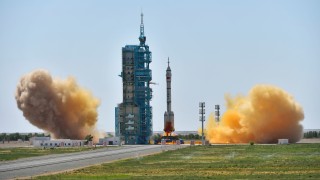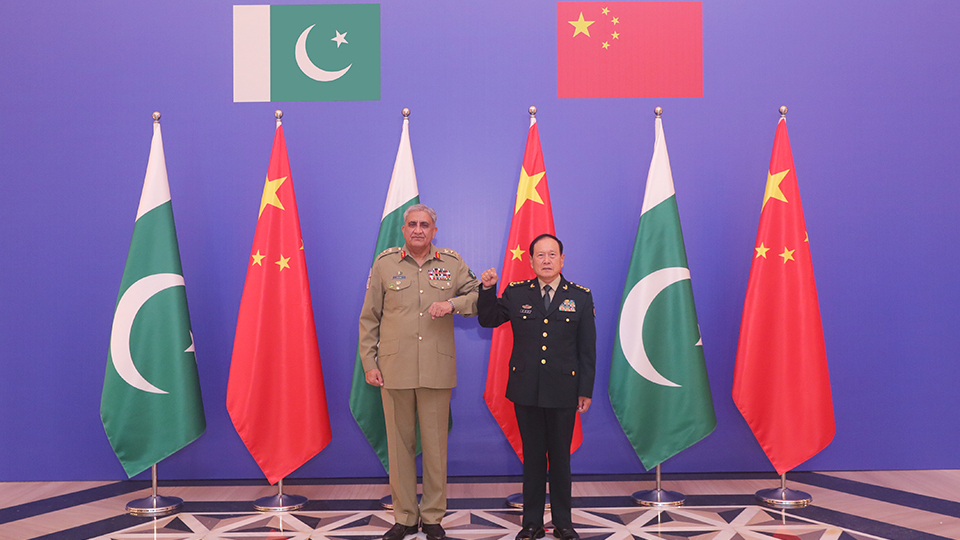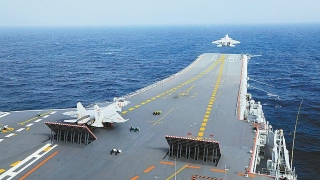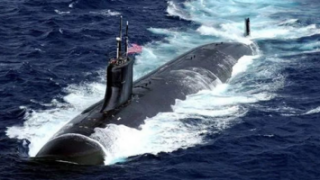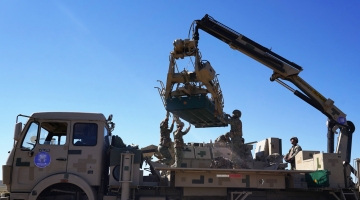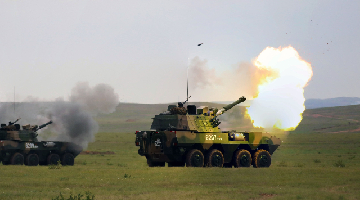By Zhao Xuelinand Wang Ying
The recent International Atomic Energy Agency (IAEA) Board of Governors Meeting decided through consultation for the fourth time to set a separate, formal topic on the “transfer of nuclear materials in the context of AUKUS nuclear submarine cooperation and its safeguards in all aspects under the Treaty on the Non-Proliferation of Nuclear Weapons (NPT)”. IAEA members expressed their serious concerns over relevant issues regarding trilateral cooperation.
The nuclear submarine cooperation among US, UK and Australia created a dangerous precedent of nuclear weapon countries illegally transferring huge amounts of weapon-grade nuclear materials to non-nuclear weapon countries, which is a serious violation of NPT’s purposes and goals and is a form of direct nuclear proliferation. That’s the “original sin” of the trilateral deal. No matter how the three countries try to disguise it and whatever approaches they promise to deal with the weapon-grade nuclear materials, they cannot cover up the fact that the materials will be transferred from nuclear weapon states to non-nuclear weapon states. Yet the three countries are still arguing on the grounds that “any nuclear material transferred would be in the form of naval reactor fuel and provided in complete, welded power units” and will not be directly used for nuclear weapons. They also refused to report to the IAEA the substantial progress on their nuclear submarine cooperation.
What’s more, the US, the UK and Australia tried, through political manipulation, to force IAEA Secretariat to propose a safeguards scheme to whitewash or even exempt the trilateral cooperation. Then, with their majority seats in the IAEA Board of Governors, they tried to ram through the scheme to legalize their behavior of nuclear proliferation. Lately, the Director General of the IAEA submitted the first written report to the Board of Governors on the announcement of the Australia, United Kingdom and United States (AUKUS) nuclear deal. The report, in disregard of the international community’s grave concerns over the nuclear proliferation risks of the trilateral deal, cited only the UK, the UK and Australia’s self-defending arguments, and jumped to misleading conclusions on matters that should have been discussed and decided by all IAEA members. That has seriously undermined the IAEA’s duty of preventing proliferation and its international authority.
IAEA is an intergovernmental international organization. Its Statute expressly stipulates that “it shall ensure that assistance provided by it or at its request or under its supervision or control is not used in such a way as to further any military purpose”. It also states that any substantive matters concerning the safeguards must be decided through consultation and studies by the members according to procedures and that the Director General is subject to the leadership and instructions of the Board of Directors.
After four rounds of discussions at the Board of Directors, IAEA members have more deeply realized the negative impacts of the AUKUS nuclear submarine cooperation, especially the risk and hazard of nuclear proliferation. Countries like Indonesia and Brazil handed out documents at the 10th review meeting of NPT to express their concerns. The IAEA, tasked with the important mission of preventing the transfer of nuclear materials and the proliferation of nuclear weapons, has no reason to endorse the three countries. Doing that will only hurt its discharge of the duty of preventing proliferation and eroding its international authority.
The nuclear submarine cooperation among the US, the UK and Australia relates to the integrity, validity and authority of NPT, and the related safeguards concern the interests of all IAEA members. This is a matter that must be discussed by all members through intergovernmental arrangements in search of a solution. The international community, including the IAEA, should keep urging the three countries to immediately stop the nuclear proliferation actions caused by their cooperation, and all members should continue to push at the Board of Directors and the General Conference the intergovernmental discussions that have been agreed through four rounds of consultations. They must focus on the nature and truth of the trilateral cooperation and take concrete actions to preserve the international nuclear non-proliferation system and safeguard global peace and security.
(The authors are from CNNC Strategic Planning Research Institute)
